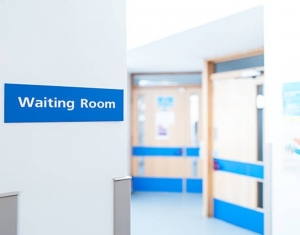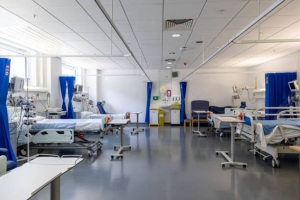NHS Waiting List Falls as Winter Pressures Mount
Newly released NHS figures show the national waiting list has fallen by 230,000 compared with the previous summer, even as the health service faces mounting strain. September’s list stood at 7.39 million treatments, representing around 6.24 million people, slightly lower than the previous month and significantly below last year’s peak. The improvement comes at a time when emergency care and ambulance services are reporting their highest activity levels heading into winter.
Flu activity is rising sharply, prompting the NHS to accelerate its vaccination programme, with more than 14.4 million flu jabs already administered—exceeding last year’s pace. Earlier and more robust winter planning has also been rolled out, supported by additional investment in general practice to improve access to appointments. Despite this groundwork, October recorded the busiest A&E attendances and ambulance call-outs on record.
Amid the pressure, ambulance crews have managed to cut response times for serious emergencies, performing nearly ten minutes faster than the same period a year earlier. The NHS is also preparing for several days of industrial action by doctors, urging the public to attend scheduled appointments unless told otherwise and to use NHS 111 for non-urgent issues.
Health leaders say continued vigilance is essential, encouraging eligible people to take up vaccinations and to use urgent and emergency services appropriately. Ministers have credited investment and modernisation for the recent fall in waiting lists, describing it as an early sign of recovery after years of rising demand. Alongside this, the NHS has begun publishing more detailed emergency department data to increase transparency across services.
Neighbourhood Health Centres Rolled Out as Government Targets Shorter NHS Waits
The government has announced the national rollout of 250 Neighbourhood Health Centres, marking a major step in its plan to cut NHS waiting times and embed healthcare closer to where people live. The new centres are designed to end long-standing regional inequalities in access to GPs, dentists, nurses and pharmacists by bringing multiple local services together under one roof. They form the backbone of a newly established Neighbourhood Health Service, aimed at providing joined-up, end-to-end care for patients, particularly those managing long-term conditions in more deprived areas.
As part of the reforms, outpatient appointments are increasingly being moved out of hospitals and into community settings, ensuring people can receive treatment minutes from home rather than travelling long distances. The government says this patient-first approach will help to prevent complications, reduce unnecessary referrals and ensure people are no longer passed between fragmented services.
The programme is being delivered through a blend of public and private investment, using both refurbished NHS estate and newly constructed buildings. This comes alongside £300 million already allocated to boost NHS technology, including digital tools that reduce administrative burdens and allow clinicians to access patient information more quickly. Ministers say these upgrades are already improving productivity across the health service.
Officials report that overall NHS performance is beginning to recover, with waiting lists reduced by more than 200,000 and millions of extra appointments delivered. More than 100 Neighbourhood Health Centres are scheduled to be open by 2030.
UK launches major AI drive to combat antibiotic-resistant infections
The UK is embarking on an ambitious £45m programme that will use artificial intelligence to speed up the discovery of new treatments for drug-resistant infections. The initiative, a partnership between the Fleming Initiative and pharmaceutical firm GSK, brings together cutting-edge technology and microbiology in an effort to stay ahead of the rising global threat posed by superbugs.
Drug resistance is escalating at a pace that has experts alarmed, with antibiotic-resistant infections believed to cause around a million deaths worldwide each year. Researchers at Loughborough and Imperial College London will focus particularly on Gram-negative bacteria such as E. coli and Klebsiella pneumoniae, organisms that are notoriously difficult to treat due to their protective outer membranes and abilities to repel or expel antibiotics. By testing thousands of different molecular structures, scientists aim to map precisely which chemicals can enter and remain inside these bacteria – data that will then be used to train AI systems.
The hope is that AI will condense years of manual laboratory work into rapid predictions, identifying how promising antibiotic candidates can be altered to slip past bacterial defences. Dr Andrew Edwards of Imperial College London warned that the consequences of untreatable infections are already visible, including cases from the conflict in Ukraine where amputations have been required because no antibiotics were effective. He believes that with a handful of strong new drugs, medicine could regain the upper hand against resistance.
Alongside antibiotic discovery, AI will also be used to forecast how superbugs evolve and spread, similar to modelling weather patterns. The collaboration is additionally expanding its reach to deadly fungal infections, starting with Aspergillus, which can be fatal for people with weakened immune systems. GSK’s chief scientific officer Tony Wood said the programme aims to unlock new methods of anticipating and countering resistance, helping protect patients long into the future.
Kent Council backs £44m plan for new care home
Kent councillors have given the green light to a £44m scheme to design, build and run a new 80-bed care home on the southern section of the Innovation Park Kent site. Labour members described the proposal as an ambitious step towards strengthening local care options, while opposition councillors questioned whether the authority could realistically shoulder the financial burden.
The planned facility would include 40 specialist dementia beds and 40 short-stay beds intended to support residents leaving hospital as they transition back to living independently. Deputy council leader Teresa Murray said demand for specialist support had reached a critical point, leaving families in increasingly difficult situations while waiting for placements to become available.
Cllr Murray argued that delaying action would only intensify pressures on the system, insisting the new home would set a “gold standard” for social care and help services work together more efficiently. She emphasised that the council was already struggling to meet the needs of residents with complex dementia and that investment was essential to ensure people received appropriate support.
However, Conservative councillors raised concerns about the projected £37m construction cost and the additional £7m needed to complete wider development on the site. Cllr Gary Hackwell warned that interest on associated loans could reach £2.7m annually, adding that the council’s overall borrowing—estimated at £655m for the year—was already unsustainable. Despite the objections, Cllr Murray has said she hopes work will begin early next year.
Experts Warn of Severe Flu Outbreak Sweeping Across the UK
Health experts are warning of one of the most severe flu seasons in years as the highly infectious H3N2 strain spreads rapidly across Britain. The variant, which caused record hospitalisations in Australia and widespread school closures in Japan, has mutated to evade existing immunity, raising fears of a sharp rise in serious illness this winter. Despite early warnings, vaccination uptake in the UK remains low, with around 40% of care home residents still unvaccinated.
The H3N2 virus is known for causing more intense symptoms, particularly higher fevers compared to other flu strains. Typical signs include a sudden onset of fever, chills, sore throat, cough, muscle aches, fatigue and headaches. The UK Health Security Agency reported that flu-related deaths in England more than doubled last winter, highlighting the growing public health concern.
While cold and flu symptoms can overlap, flu tends to strike more suddenly and severely. Colds usually involve a gradual onset of mild symptoms such as a runny nose, whereas flu can quickly lead to exhaustion and complications, especially in vulnerable groups.
Doctors are urging people to get their annual flu jab and take simple hygiene precautions — such as regular hand washing, covering coughs and avoiding crowded places — to reduce the risk of infection as the virus continues to spread.
NHS to Proceed with Thousands of Job Cuts After Treasury Agreement
Thousands of administrative and management roles within the NHS in England are set to be cut following an agreement with the Treasury, allowing the health service to temporarily exceed its spending limits to cover redundancy costs. Earlier this year, the government announced plans to remove around 18,000 jobs as part of major reforms, which include bringing NHS England under the Department of Health and reducing local health board staff.
Negotiations had stalled over how to fund the estimated £1 billion cost of the pay-offs, but a compromise has now been reached. The NHS will overspend this year and is expected to make up the shortfall through future savings. Officials stressed that no new funding is being added to the health budget beyond the existing settlement, which includes a £29 billion annual increase above inflation by 2028-29.
Health Secretary Wes Streeting said the changes would streamline management and prioritise front-line care. Speaking ahead of a conference speech, he said patients wanted “fewer layers of bureaucracy” and confirmed efforts were underway to “rebuild the NHS” through efficiency and modernisation.
The reforms aim to save £1 billion annually by the end of the parliament, equivalent to funding more than 100,000 additional hip and knee operations. However, unions have warned that cutting experienced staff could harm patient services and public health programmes.
New £105m NHS rehabilitation centre sets benchmark for patient recovery
A pioneering national rehabilitation facility has opened in Nottinghamshire, aiming to transform how the NHS supports patients recovering from serious injuries and illnesses. The £105m National Rehabilitation Centre (NRC), managed by Nottingham University Hospitals NHS Trust, features 70 beds and an expert workforce equivalent to 200 full-time staff. Designed as a model for future NHS rehabilitation services, it offers intensive physical, psychological and cognitive therapies to help patients regain independence and return to work.
Led by director Miriam Duffy, a former physiotherapist, the project represents over a decade of development. She described the centre as marking a new era for recovery care, highlighting the shortage of NHS rehabilitation capacity. The NRC brings together physiotherapists, occupational and speech therapists, with family involvement central to treatment plans aimed at long-term reintegration into daily life.
Located alongside the Defence Medical Rehabilitation Centre at Stanford Hall, patients can also access cutting-edge facilities, including virtual reality rehabilitation technology, hydrotherapy pools and motion-testing environments. The partnership allows NHS patients to benefit from advanced military rehabilitation expertise and equipment.
The initiative was originally championed by the late Duke of Westminster, whose charitable foundation provided the estate and significant funding. Supported by the Black Stork Charity, the NRC is intended to revolutionise NHS rehabilitation and influence national standards for recovery care and research.
Adult Social Care Sector Reaches £77.8bn Despite Ongoing Staffing Struggles
England’s adult social care industry contributed an estimated £77.8 billion to the economy in 2024/25, marking a new high according to Skills for Care’s latest State of the Adult Social Care Sector and Workforce report. Employment in the sector grew by 3.4% to 1.6 million filled posts, while the total number of roles increased by 2.2%, underlining its expanding role as a key public service and economic driver.
The increase is largely attributed to improved staffing levels and the uplift in the National Living Wage, which has helped raise average pay. Although vacancy rates have returned to pre-pandemic levels at 7%, recruitment and retention remain persistent challenges. Domestic employment fell by 30,000, while international recruitment dropped by over half to 50,000, sparking calls for a stronger homegrown workforce strategy.
Turnover in the independent sector eased to 24.7%, and the number of men in the workforce rose to a record 22%. However, only 38% of care workers now hold a Level 2 qualification, while many employers still lack enhanced sick pay or pension benefits—factors linked to higher staff departures.
Skills for Care and NHS leaders have stressed the need for better pay, training, and job quality to strengthen the workforce ahead of rising demand. The sector is projected to require 470,000 additional roles by 2040 to meet the needs of an ageing population.











